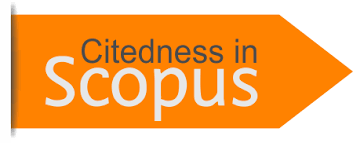Financial Development, Income Inequality and The Role of English Proficiency
Keywords:
Financial Development; Income Gap; English language proficiency; Dynamic Panel.Abstract
The role of English is not only as a language of trade, finance and technology but also become one of the development strategies in 21st century. The motivation of this study is to provide empirical evidence of the relationship between financial development, income gap and English language proficiency. The theory suggests that financial development was seen to reduce the income gap but empirical evidence shows diverse results. Therefore, this study aims to analyse the interaction between financial development and English language proficiency as to test whether the impact of financial development on the income gap is strengthened by the good in English language proficiency on countries or vice versa. This study is based on dynamic panel model with system GMM estimators for 69 countries from 1980-2014. The findings show that the interaction between financial development and English language proficiency is negative and significant. This illustrates that the English language proficiency can stimulate the effect of financial development to reduce the income gap. Meanwhile financial development as well as advances in new knowledge are important factors for economic development. Other factors need to be taken into account to ensure that financial development is beneficial in reducing the imbalance of income distribution.















